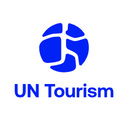UN Tourism and TUI Care Foundation Announce Grants for Rural Artisans in Africa

- UN Tourism and the TUI Care Foundation invite artisans in rural destinations across Africa to apply to the Colourful Cultures small grants initiative.
- Applications can now be submitted for projects in Morocco, Mozambique, Namibia, Rwanda, Senegal, South Africa, Tanzania, The Gambia, Tunisia, and Zambia
UN Tourism and the TUI Care Foundation launch 'Colourful Cultures', a call for proposals focused on supporting the creative talent of a continent. The initiative aims to empower local artists and artisans, particularly women and youth, in rural tourism destinations across selected African countries. These projects will enhance the benefits of tourism for local artists and artisans, progressing sustainable economic opportunities while safeguarding cultural heritage and enhancing community empowerment and engagement.
Tourism has the potential to deliver significant socio-economic benefits in rural areas, preserving cultural heritage and creating jobs. We are proud to launch the first-ever Tourism for Rural Development Small Grants Programme at UN Tourism. 'Colourful Cultures', enabled by the TUI Care Foundation, exemplifies our commitment to sustainable development and the empowerment of local communities. UN Tourism Secretary-General Zurab Pololikashvili
The collaboration with UN Tourism is a testament to our dedication to the sustainable development of the tourism sector. By supporting artists and artisans, we are preserving cultural heritage and promoting economic growth and social well-being in some of the world's most vulnerable communities. Thomas Ellerbeck, Chairman of the TUI Care Foundation
Call for Applications: Supporting Artists and Artisans
Civil society and non-governmental organizations are invited to present projects that benefit artists and artisans in rural tourism destinations in Morocco, Mozambique, Namibia, Rwanda, Senegal, South Africa, Tanzania, The Gambia, Tunisia, and Zambia. Each selected project can receive a maximum grant of EUR 20,000. The programme is expected to increase the capacity of artists and artisans to tap into the tourism economy, enhance their visibility in tourism destinations, and improve the availability of support services in rural areas.
'Colourful Cultures' is part of the innovative tourism for rural development small grants programme from UN Tourism that is dedicated exclusively to leveraging tourism for sustainable development in rural areas. To kickstart the programme, the United Nations Specialized Agency has welcomed the TUI Care Foundation as its first funding partner.
The call for applications will close on 2 December.
Related Links
- Call for Proposals - Colourful Cultures
- Tourism for Rural Development Small Grants Programme
- Video - Colourful Cultures
About UN Tourism
The World Tourism Organization (UN Tourism) is the United Nations agency responsible for the promotion of responsible, sustainable and universally accessible tourism.
As the leading international organization in the field of tourism, UN Tourism promotes tourism as a driver of economic growth, inclusive development and environmental sustainability and offers leadership and support to the sector in advancing knowledge and tourism policies worldwide.
Our Priorities
Mainstreaming tourism in the global agenda: Advocating the value of tourism as a driver of socio-economic growth and development, its inclusion as a priority in national and international policies and the need to create a level playing field for the sector to develop and prosper.
Promoting sustainable tourism development: Supporting sustainable tourism policies and practices: policies which make optimal use of environmental resources, respect the socio-cultural authenticity of host communities and provide socio-economic benefits for all.
Fostering knowledge, education and capacity building: Supporting countries to assess and address their needs in education and training, as well as providing networks for knowledge creation and exchange.
Improving tourism competitiveness: Improving UN Tourism Members' competitiveness through knowledge creation and exchange, human resources development and the promotion of excellence in areas such as policy planning, statistics and market trends, sustainable tourism development, marketing and promotion, product development and risk and crisis management.
Advancing tourism's contribution to poverty reduction and development: Maximizing the contribution of tourism to poverty reduction and achieving the SDGs by making tourism work as a tool for development and promoting the inclusion of tourism in the development agenda.
Building partnerships: Engaging with the private sector, regional and local tourism organizations, academia and research institutions, civil society and the UN system to build a more sustainable, responsible and competitive tourism sector.
Our Structure
Members: An intergovernmental organization, UN Tourism has 160 Member States, 6 Associate Members, 2 Observers and over 500 Affiliate Members.
Organs: The General Assembly is the supreme organ of the Organization. The Executive Council take all measures, in consultation with the Secretary-General, for the implementation of the decisions and recommendations of the General Assembly and reports to the Assembly.
Secretariat: UN Tourism headquarters are based in Madrid, Spain. The Secretariat is led by the Secretary-General and organized into departments covering issues such as sustainability, education, tourism trends and marketing, sustainable development, statistics and the Tourism Satellite Account (TSA), destination management, ethics and risk and crisis management. The Technical Cooperation and Silk Road Department carries out development projects in over 100 countries worldwide, while the Regional Departments for Africa, the Americas, Asia and the Pacific, Europe and the Middle East serve as the link between UN Tourism and its 160 Member States. The Affiliate Members Department represents UN Tourism's 500 plus Affiliate members.
UN Tourism Communications Department
+34 91 567 8100
UN Tourism
